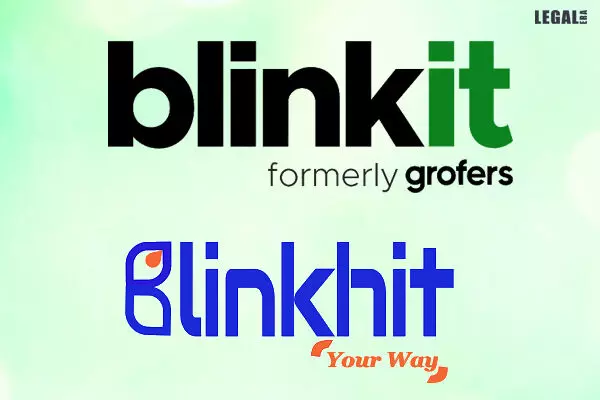- Home
- News
- Articles+
- Aerospace
- Agriculture
- Alternate Dispute Resolution
- Banking and Finance
- Bankruptcy
- Book Review
- Bribery & Corruption
- Commercial Litigation
- Competition Law
- Conference Reports
- Consumer Products
- Contract
- Corporate Governance
- Corporate Law
- Covid-19
- Cryptocurrency
- Cybersecurity
- Data Protection
- Defence
- Digital Economy
- E-commerce
- Employment Law
- Energy and Natural Resources
- Entertainment and Sports Law
- Environmental Law
- FDI
- Food and Beverage
- Health Care
- IBC Diaries
- Insurance Law
- Intellectual Property
- International Law
- Know the Law
- Labour Laws
- Litigation
- Litigation Funding
- Manufacturing
- Mergers & Acquisitions
- NFTs
- Privacy
- Private Equity
- Project Finance
- Real Estate
- Risk and Compliance
- Technology Media and Telecom
- Tributes
- Zoom In
- Take On Board
- In Focus
- Law & Policy and Regulation
- IP & Tech Era
- Viewpoint
- Arbitration & Mediation
- Tax
- Student Corner
- AI
- ESG
- Gaming
- Inclusion & Diversity
- Law Firms
- In-House
- Rankings
- E-Magazine
- Legal Era TV
- Events
- News
- Articles
- Aerospace
- Agriculture
- Alternate Dispute Resolution
- Banking and Finance
- Bankruptcy
- Book Review
- Bribery & Corruption
- Commercial Litigation
- Competition Law
- Conference Reports
- Consumer Products
- Contract
- Corporate Governance
- Corporate Law
- Covid-19
- Cryptocurrency
- Cybersecurity
- Data Protection
- Defence
- Digital Economy
- E-commerce
- Employment Law
- Energy and Natural Resources
- Entertainment and Sports Law
- Environmental Law
- FDI
- Food and Beverage
- Health Care
- IBC Diaries
- Insurance Law
- Intellectual Property
- International Law
- Know the Law
- Labour Laws
- Litigation
- Litigation Funding
- Manufacturing
- Mergers & Acquisitions
- NFTs
- Privacy
- Private Equity
- Project Finance
- Real Estate
- Risk and Compliance
- Technology Media and Telecom
- Tributes
- Zoom In
- Take On Board
- In Focus
- Law & Policy and Regulation
- IP & Tech Era
- Viewpoint
- Arbitration & Mediation
- Tax
- Student Corner
- AI
- ESG
- Gaming
- Inclusion & Diversity
- Law Firms
- In-House
- Rankings
- E-Magazine
- Legal Era TV
- Events
Supreme Court Rules in Favor of Blinkit in Trademark Infringement: Blinkhit Has Zero Turnover

Supreme Court Rules in Favor of Blinkit in Trademark Infringement: Blinkhit Has Zero Turnover
The Supreme Court has refused to interfere with the Karnataka High Court order that had granted relief to e-commerce grocery delivery service Blinkit in a trademark infringement suit filed by a Bangalore-based startup called Blinkhit.
The division judge’s bench of Justices Sanjiv Khanna and SVN Bhatti noted that Blinkhit did not even have any turnover as per the case files and records.
“You have zero turnover. I went through the files; you did not even mention your financials. Sorry,” Justice Khanna remarked to counsel for Blinkhit. Further, the Court refused to interfere with the High Court’s order as the Civil Court is currently conducting the trial in the trademark infringement suit.
In 2022, Blinkhit moved a plea in Bengaluru’s city Civil Court alleging that it had obtained the registered trademark back in 2016 under many classes of the Trademark Act. Classes under trademark signify categorization of products and services.
Blinkhit alleged that it had established its vast reputation and goodwill in the market with trademark and trading style with a unique B device. However, Blinkit, which was previously called ‘Grofers’ changed its name, infringing their trademark only in 2021.
The city Civil Court in Bengaluru had granted a temporary injunction, restraining Blinkit from using the trademark till the completion of the trial in the matter is completed.
Before the High Court Blinkit argued that even though Blinkhit had registered the trademark it had never used it as a brand name in any of its businesses. The company further argued that Blinkit was visually, structurally, conceptually and phonetically different from Blinkhit.
The High Court had taken into account the fact that ‘Blinkhit’ had not used its registered trademark from 2016 till the date a suit was filed before the Trial Court.
Justice SR Krishna Kumar of the High Court had observed that the nature of service alleged to be carried out by the parties was completely different and merely registering a trademark to carry on a completely different activity could not be the basis for a temporary injunction.
The Karnataka High Court set aside the Trial Court’s order and directed it to dispose of the suit in one year. Blinkhit challenged this order at the Supreme Court.
The Apex Court after a very brief hearing noted in its order that it was not inclined to interfere with the High Court's ruling. Accordingly, the appeal was dismissed.
Senior Advocates Neeraj Kishan Kaul and Mukul Rohatgi appeared for Blinkit.



